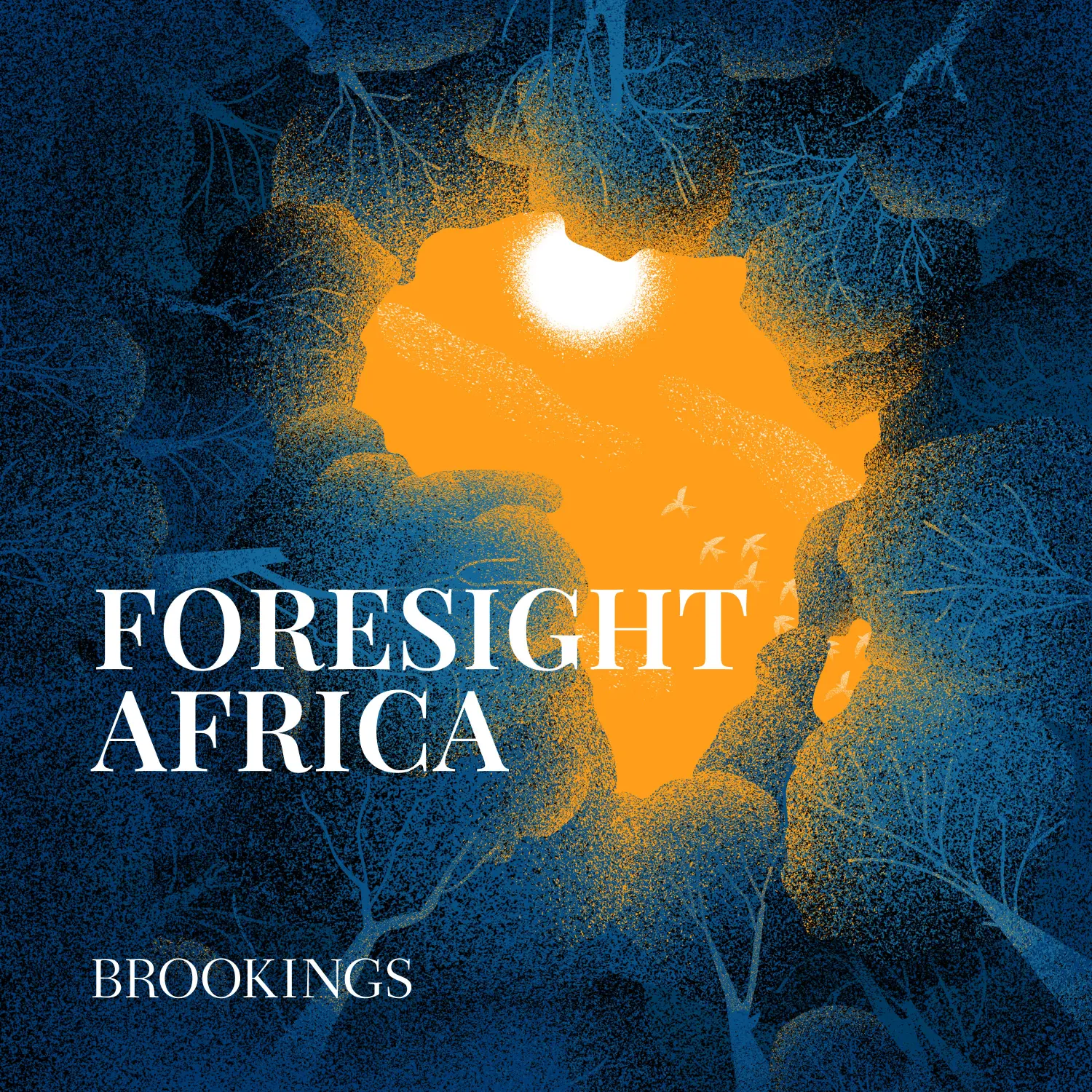This audio recording is part of the World Bank/IMF Spring Meetings 2025 special episode of the Foresight Africa podcast. Listen to the full episode, which includes interviews with six other speakers on site at the event.
Transcript
BEN YEDDER: Hi, my name is Omar Ben Yedder. I’m the group publisher at media and communications group IC Publications, publishers amongst other platforms of African Business Magazine.
SIGNÉ: Thank you so much for joining us today, Omar.
BEN YEDDER: Thank you so much Landry, and I actually read your Foresight Africa report earlier this year ahead of Davos and it was a fascinating read and really a toolkit across all sectors what needed to be done and what the state of affairs was.
SIGNÉ: Thank you so much, and we are also very grateful that you moderated one of the sessions around the Foresight Africa Lounge and the book at Davos, on the sideline of Davos. So, first question, what are your key takeaways from the 2025 Spring Meetings?
BEN YEDDER: Thank you, Landry for that question. We’re here at the Spring Meetings—we’re only halfway through so there’s still a a fair way to go. But when you speak to people about the Spring Meetings and the key takeaways so far, they’ll say a couple of they’ll say a couple of adjectives. One is uncertainty and and the fact that it seems to be a quieter Spring Meetings.
From my perspective, one of my takeaways is that we heard from the IMF in terms of African forecasts that given global headwinds, they’ve they’ve reduced the forecast from, I think, 4.2 to 3.9 average growth. But I look at Africa very differently, actually. I’m seeing some of the big economies reemerging or or reclaiming their their place in terms of drivers of growth. So the Nigerias, I think the reforms are starting to pay off. We’re seeing in South Africa, following the government of national unity, we saw some progress, even though regards to the budget, there’s a there’s a bit of a sticking point there. But we’re seeing the big economies playing a greater role, and that’s what that’s what the continent needs. We need the Moroccos, the Egypts, the South Africas, and the Nigerians, and also, to some extent, the Angolans and the Kenyans to be playing their playing their part. So actually, I’m pretty optimistic in terms of in terms of the future after a tough tough five or six years.
The other thing from a takeaway perspective, is actually the lack of discussions around climate. Climate used to dominate discussions for a for a number of years. And today I think there’s only two official World Bank events that talk about that talk about climate, and and we’ve seen that it’s taking a a back role or backstage in that no one wants to be talking about climate in this new era of of U.S. politics.
SIGNÉ: Thank you so much, Omar. How might the 2025 Spring Meetings shape policy decisions and deliver tangible results across Africa moving forward? And we can speak about those related to the World Bank, the IMF, central banks, various ministries or various countries.
BEN YEDDER: I think there’s been progress over previous Spring Meetings and previous Annual Meetings from an African perspective anyway. So what do I mean by that? I think we come with having, let’s say, weathered weathered the storm and and even though the fiscal space is very is very tight, we seem to be managing managing the situation a little bit better. So we’re better prepared.
Obviously, we’ve gone through three months of turbulence, global turbulence. But I think, again, in terms of Africa’s position, it’s probably strengthened our resolve. It’s also accelerated some of our decision-making in terms of the need to strengthen our own institutions and to strengthen our own delivery mechanisms. And at the same time, we’ve always thought that the system has been rigged against us. So … so when everything’s on the table, that actually enables you to put forward your position whilst everyone is renegotiating theirs. So … so from that perspective, it hasn’t necessarily been a bad thing, and it allows us allows you to be bolder. If people are renegotiating their own trade terms, it allows you to also be more demanding in terms of your own needs and your own and your own requests in terms what you want from from future deals and and from future transactions, including the processing of minerals and playing a greater role in global value chains.
So … so if anything, it’s a … it calls for a reset. We’ve asked for a reform of the global financial architecture that, as we said, is rigged against you. And trade terms have also been rigged, to some extent, against against African countries. So if anything, it allows you to be bolder. If you see people being bolder with their requests, it allows you to be bolder of yours.
So… so I think we leave the Spring Meetings maybe with greater clarity in terms of what the future has in store, and also the need, as I said, to strengthen our own institutions in terms of our own development finance institutions. And it comes at a critical time, obviously, with new elections of the president of the African Development Bank and the African Export-Import Bank. So, what we’ll see is a greater, or at least a greater emphasis on domestic resource mobilization on the continent to be able to have strong institutions that can drive development and therefore less need to rely on external partners.
SIGNÉ: Amazing. Thank you so much for joining us today.
BEN YEDDER: Thank you for inviting me.
-
Acknowledgements and disclosures
The Foresight Africa podcast is brought to you by the Brookings Podcast Network. Send your feedback and questions to podcasts at Brookings dot edu. My special thanks to the production team including Fred Dews, producer; Nichole Grossman, Dafe Oputu, and Nicole Ntungire, associate producers; Gastón Reboredo, audio engineer; and Izzy Taylor, senior communications coordinator in Brookings Global. The show’s art was designed by Shavanthi Mendis. Additional promotional support for this podcast comes from my colleagues in Brookings Global and the Office of Communications at Brookings.
The Brookings Institution is committed to quality, independence, and impact.
We are supported by a diverse array of funders. In line with our values and policies, each Brookings publication represents the sole views of its author(s).





Commentary
Omar Ben Yedder on Africa’s strategic position in global conversations
Foresight Africa podcast at the 2025 World Bank/IMF Spring Meetings
May 6, 2025